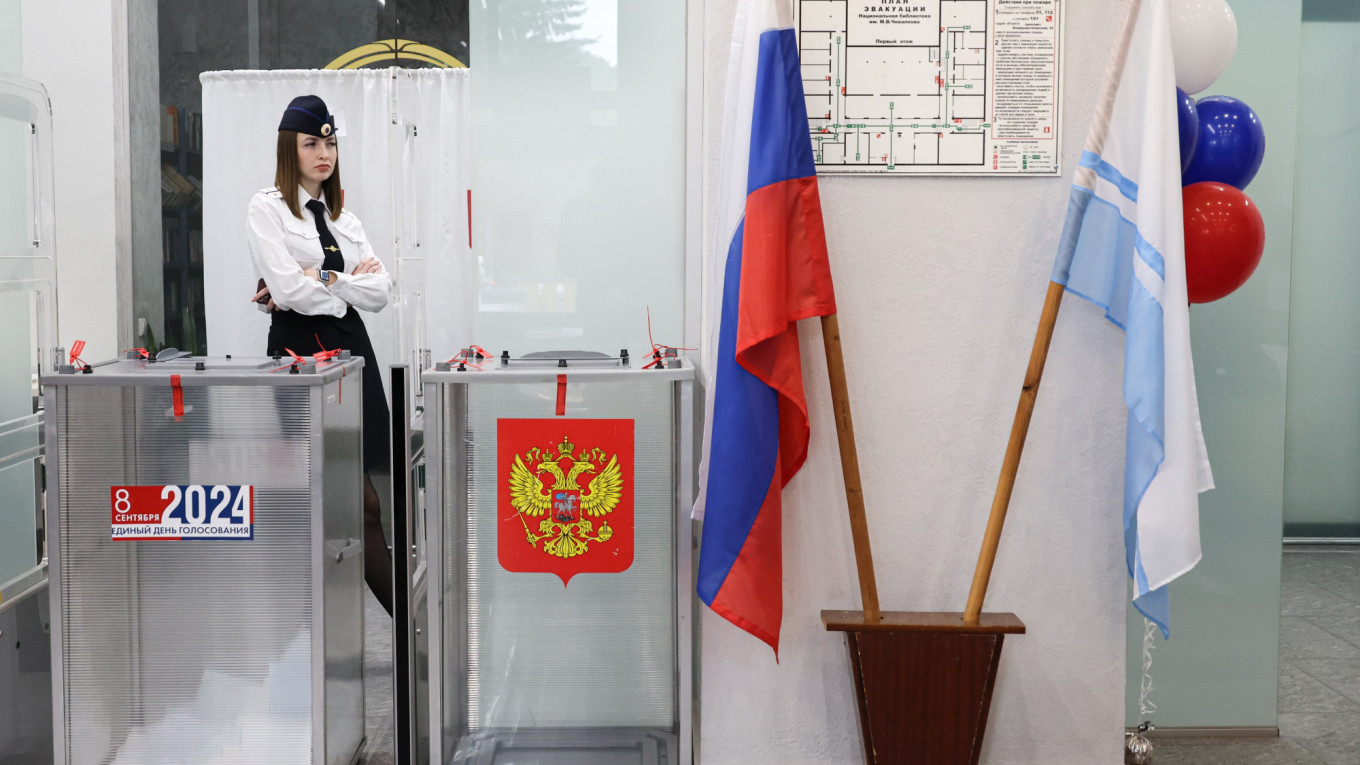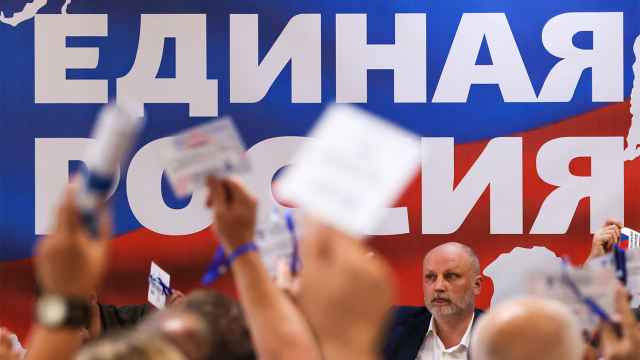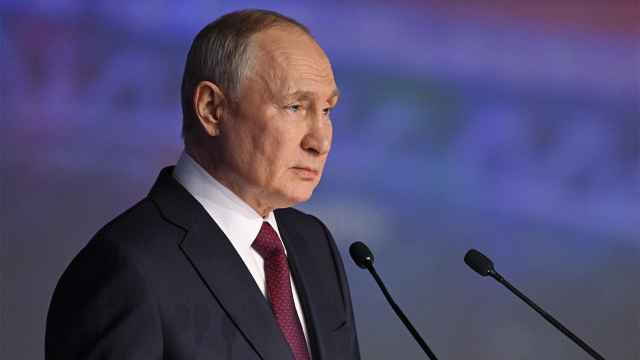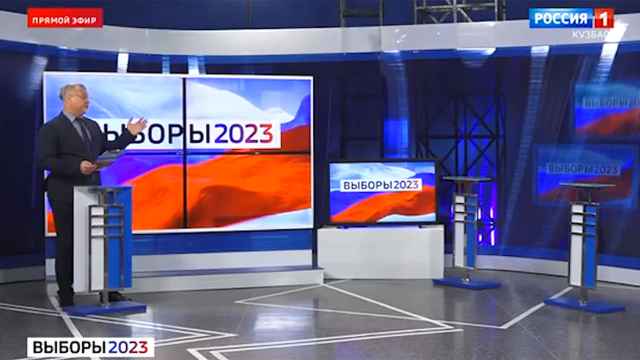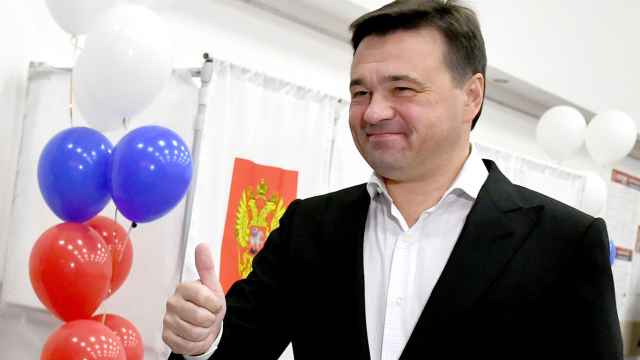Even against the backdrop of war, blatant electoral fraud and the exclusion of independent candidates, I welcomed the fact that Russians have continued to take part in elections.
Under harshly repressive conditions, elections remain perhaps the only legal and relatively safe way for Russian civil society to make its voice heard. Protesting the war is impossible and criminally punishable, and the authorities have classified almost all civil society activities, such as environmental protests and rallies, as “extremist.”
During the election campaign, one can publicly address a large audience, criticize officials and even promote a peaceful agenda, as the Yabloko party does.
This is what Yekaterina Duntsova and Boris Nadezhdin did ahead of the March presidential election. While Duntsova was blocked at an early stage, Nadezhdin was allowed to collect signatures for his candidacy. He gave anti-war democratic Russians a chance to stand together, queuing up to leave signatures in support of his campaign. On election day, after he was barred from running, these people lined up at polling stations in the “Noon Against Putin” demonstration.
After the presidential election, it was crucial to keep the enthusiasm in Russian civil society from waning. The pro-democratic opposition forces that rallied around Duntsova and Nadezhdin geared up to participate in this September’s parliamentary elections.
Over 4,000 elections of various levels involving tens of thousands of mandates are being held across Russia this weekend. This year’s election sets a new record for the number of candidates not registered.
Yabloko, considered the oldest surviving democratic party in Russia, managed to register 73 candidates in 31 regions under the slogan “For Peace and Freedom! For a Ceasefire Agreement!” — the most anti-war statement one can make these days.
But this is a minuscule number when compared to the number of candidates from United Russia and the “systemic opposition” parties LDPR, CPRF, A Just Russia, New People, Communists of Russia and the Pensioners’ Party.
Furthermore, Yabloko’s results this year were worse than in previous elections. The party failed to get on the ballot in any major elections. Four Yabloko representatives (including one independent candidate) attempted to register as candidates in some of the 21 gubernatorial elections. None were allowed onto the ballot.
A significant number of Yabloko candidates, both single-mandate and party-list candidates, were registered in the Novgorod and Pskov regions, where the party has traditionally had a strong presence. However, I cannot believe they will be elected to city and district councils, for reasons ranging from electoral fraud to their low popularity among voters. Last year, only one Yabloko candidate was elected and became a deputy in the Veliky Novgorod city council.
In Moscow, the City Duma elections will be held to appoint municipal deputies in districts such as the newly formed municipal districts of so-called New Moscow and the old Kurkino district.
As the Moscow City Duma governs the nation’s capital, I did not expect any surprises there. Democratic candidates would not be allowed to take part in the elections, whether they are self-nominated or from Yabloko, Nadezhdin’s Civic Initiative or Duntsova’s Rassvet parties. After the opposition achieved some success in the 2017 municipal elections, the Kremlin and the Moscow Mayor’s Office decided to cleanse the capital’s political field of opposition deputies.
In 2019, thanks to fraudulent handwriting examinations, allies of Alexei Navalny including Lyubov Sobol, Ivan Zhdanov and Ilya Yashin as well as Alexander Solovyov of Open Russia were blocked from standing. Many signatures collected by these candidates were subsequently declared invalid.
Disqualification due to invalidated signatures happened again this time around, with all 23 candidates from the Yabloko party failing to register for the Moscow City Duma race. By comparison, 23 out of the 25 candidates nominated by the unpopular Communists of Russia party were registered.
Meanwhile, a significant number of pro-democratic candidates were registered for the early municipal elections in Moscow’s Kurkino district: six from Yabloko and one nominated by the candidate headquarters that worked on the anti-war Nadezhdin’s presidential campaign.
In 2022, Moscow’s municipal councils were also cleansed of the opposition. Independent candidates, including deputies of the previous democratic convocation, were removed from the elections for posting so-called “extremist symbols” like the logo for Smart Voting — a voting strategy invented by Alexei Navalny, whose headquarters were banned as an “extremist” organization.
These candidates were charged with the misdemeanor crime of displaying “extremist” symbols. Anyone convicted of this offense is barred from running for office.
It got to the point that unknown individuals sabotaged Yabloko candidate Andrei Morev (the then-head of Moscow’s Yakimanka municipal district) by gluing a Smart Voting sticker to his car. Morev was held liable and removed from the elections. Ultimately, one in five of the 179 Yabloko candidates in the Moscow municipal elections were disqualified.
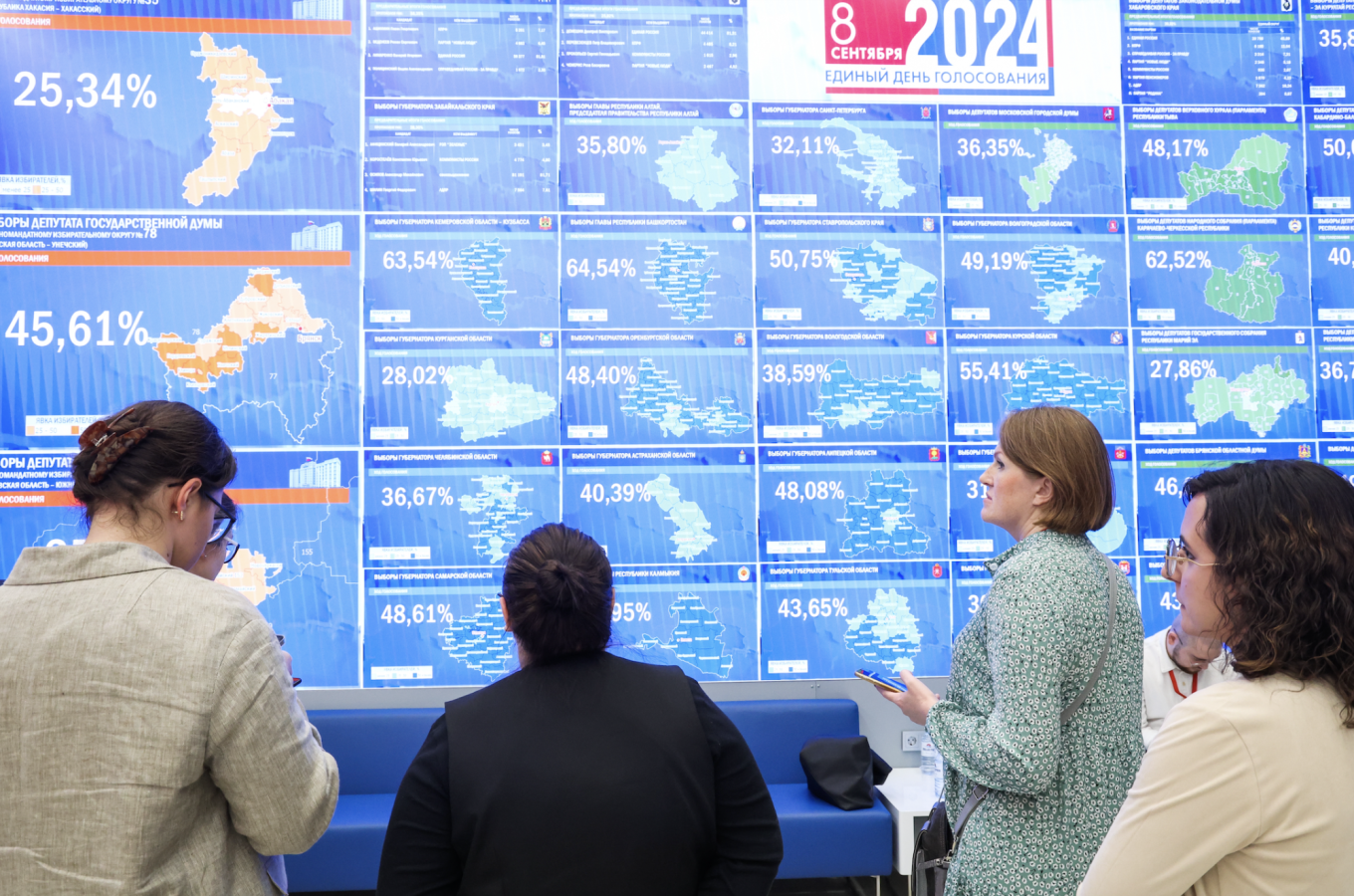
The requirement to collect a huge number of signatures in two or three weeks is not a barrier for unpopular politicians, but it is for democratic candidates whom the regime does not want and is afraid to see in power. In contrast, United Russia candidates have administrative resources to collect their signatures without filters or tight deadlines.
Lyudmila Vasilyeva, an 83-year-old Leningrad Siege survivor from St. Petersburg, is among those who encountered these challenges. It was physically impossible for Vasilyeva, who openly called for an end to the war against Ukraine, to collect the 73,000 signatures needed to become a gubernatorial candidate in just two weeks. Even if she had managed to collect them, it is obvious that she would not have passed the so-called “municipal filter” designed to prevent non-Kremlin-approved candidates from running to govern a federal city like St. Petersburg.
In many districts of St. Petersburg, it is physically impossible to get support from democratic municipal deputies who were elected in 2019. Many of them were stripped of their mandates after they publicly opposed the war and called for Putin’s resignation and later emigrated, fearing criminal prosecution.
St. Petersburg will also hold elections for municipal deputies this weekend. In preparation, Duntsova’s Rassvet party and the European Petersburg democratic movement — among other political initiatives — joined forces to help independent candidates. But here, too, only a few of these candidates were registered.
St. Petersburg has its own unique machinations for excluding candidates from elections. To submit registration documents to the election commission, you need to queue up at 8 a.m., by which point there is already a queue of 20 people. These people are standing in line not as genuine candidates, but are there simply to obstruct the real candidates from submitting their documentation on time.
Another method of disqualification recently appeared. In June, President Putin signed off on amendments to the election law that deprive Russians of the right to be elected — and incumbent politicians of their powers — if they are labeled “foreign agents.” This is a tool to exclude both prominent opposition candidates and just competitors from the electoral process. The Justice Ministry is quick to name people as foreign agents. It no longer needs to prove that an individual has received funds from a foreign entity, as the law initially stipulated. Now, it is enough to say they fell under foreign “influence.” There have already been several cases of people being labeled “foreign agents” just before they were supposed to be registered as candidates.
Many wondered why creating a mechanism to bar independent candidates from the elections by naming them “foreign agents” was needed in the first place. Isn’t it enough to simply invalidate their signatures from voters?
The point is that merely refusing to register a candidate by invalidating their signatures does not have any legal consequences for them. Moreover, candidates will try to challenge handwriting examinations in court by bringing in voters who signed for their nomination as witnesses. This is what Ilya Yashin did after the election commission invalidated his signatures in 2019, after which voters protested outside the commissions’ offices and wrote statements that they had indeed left signatures for him.
Being recognized as a foreign agent, by comparison, means a ban on professions such as teaching, quarterly financial reports, and even criminal penalties for failing to comply with the requirements for foreign agents. Fear of such consequences discourages people from running for office. As a result, the number of people willing to run for election has sharply decreased, primarily among those with pro-democracy views.
Thus, only a few candidates supported by the Zemsky Congress, a nationwide movement of municipal deputies, were registered as candidates. While some failed to collect enough signatures or were refused registration, the majority simply feared becoming foreign agents.
Why does the regime need such sophisticated tools to keep its opponents out of the elections? After all, the machine of total electoral fraud has been adopted across Russia by now, including Remote Electronic Voting over several days, the destruction of the electoral observer community, changing laws to complicate election observation and traditional fraud tactics like inflating turnout and pro-government votes.
Besides, Moscow offers even newer methods of fraud: it’s no longer enough to request a paper ballot at the polling station to submit a protest vote by invalidating your ballot. You now have to submit an application to your local election commission in advance to get this paper ballot on voting day. Otherwise, you’ll have to vote at an electronic terminal at the polling station, where your vote will go into the citywide Remote Electronic Voting database, where it gets lost in the mass of falsified data, and nothing will prevent your vote from being changed.
There are a few answers for this. The regime simply needs the ballots to be free of independent candidates — especially democratic and anti-war ones. In the Kremlin’s eyes, the ballot should demonstrate the unity of the people with their government, so that voters dissatisfied with the regime, finding no opposition candidates on the ballot, feel powerless and alone and don’t even bother to go out and vote.
Just imagine if the candidates registered for the ballot started campaigning and rallying people around the slogan “For Peace and Freedom!” like Yabloko does. Or if Gleb Babich — who was nominated by the left-wing movement for the Moscow City Duma — were to promote his “Three words: Peace, equality, future!” campaign slogan? A totalitarian regime cannot allow this.
By nature, opposition candidates raise issues of socio-economic tension, which grows increasingly acute with each passing day of the war. This includes the sharp rise in consumer inflation, which has reached 71%, according to the sociological service Ramir; the cancellation of preferential mortgages; the decline in the quality and availability of goods; and the rise in utility tariffs amid declining quality of services.
If government opponents were able to run for election, the public would want to vote for them, demanding paper ballots to submit their protest votes. This would allow the independent candidates to send observers to the polling stations. And after the elections, they would try to defend the votes cast for them in court and at rallies.
No. Putin’s dictatorship cannot allow this kind of scenario. In terms of retaining power, the regime has chosen the right strategy: to exclude people from the electoral process entirely. I am forced to admit that ahead of the 2024 Single Voting Day, the regime has honed this technology to perfection.
A Message from The Moscow Times:
Dear readers,
We are facing unprecedented challenges. Russia's Prosecutor General's Office has designated The Moscow Times as an "undesirable" organization, criminalizing our work and putting our staff at risk of prosecution. This follows our earlier unjust labeling as a "foreign agent."
These actions are direct attempts to silence independent journalism in Russia. The authorities claim our work "discredits the decisions of the Russian leadership." We see things differently: we strive to provide accurate, unbiased reporting on Russia.
We, the journalists of The Moscow Times, refuse to be silenced. But to continue our work, we need your help.
Your support, no matter how small, makes a world of difference. If you can, please support us monthly starting from just $2. It's quick to set up, and every contribution makes a significant impact.
By supporting The Moscow Times, you're defending open, independent journalism in the face of repression. Thank you for standing with us.
Remind me later.



